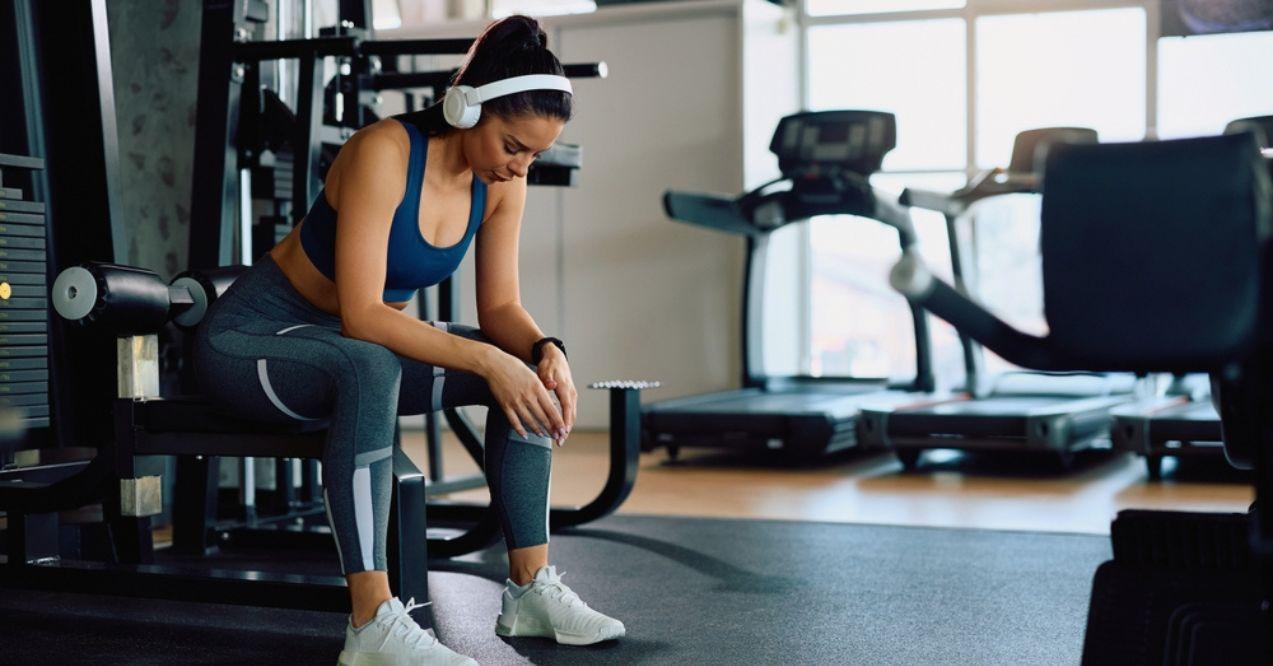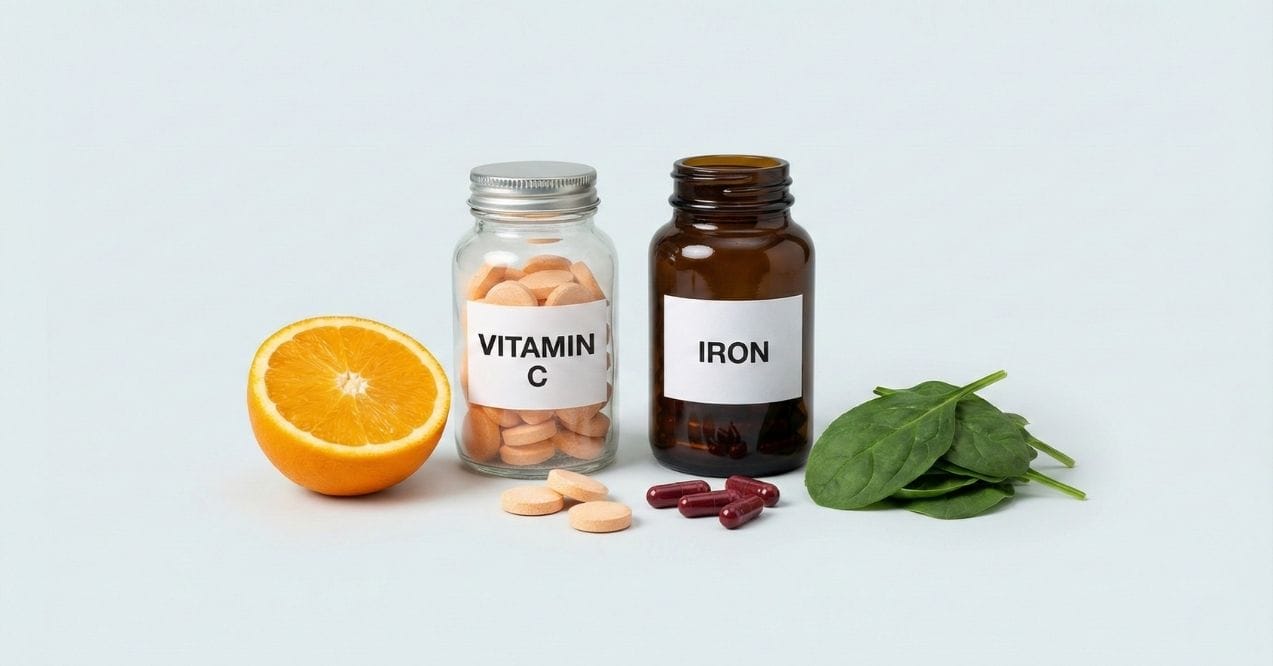Why Does My Body Feel Heavy?
Why does my body feel heavy? In this guide find out effective solutions to improve your well-being. Start feeling lighter today!


Why does my body feel heavy? This question resonates with many, particularly among middle-aged and older adults. The sensation of body heaviness is a common experience that may significantly impact daily life, influencing everything from routine activities to overall well-being. Understanding why your body feels heavy and sluggish is crucial, not only for identifying any underlying health issues but also for adopting appropriate lifestyle changes and treatments.
As we age, our bodies undergo various changes, often leading to feelings of fatigue and heaviness. One common complaint is that the legs feel heavy, making tasks such as climbing stairs or walking longer distances more challenging. This might be due to a range of factors, including decreased muscle strength, poor circulation, or joint issues. Understanding the causes of heaviness in legs is the first step towards addressing the problem.
A general sense of feeling heavy and weak may be attributed to several causes, ranging from lifestyle factors like diet and exercise, to medical conditions. So, this article aims to explore these issues in greater depth, offering insights and reassurance. By understanding the underlying causes and learning how to manage them, individuals might take proactive steps towards improving their quality of life.
Four Common Causes of Why My Body Feels Heavy and Weak
Experiencing a sensation where your body feels heavy and weak can be puzzling and discomforting. This introductory guide delves into four common causes of this phenomenon, ranging from lifestyle factors to medical conditions, providing insights to help you understand and address why you might feel weighed down in your daily life.
1. Sleep Factors

Lack of quality sleep significantly impacts bodily functions, leading to feelings of heaviness and decreased physical well-being. Sleep deprivation disrupts the body’s circadian rhythms, causing a cascade of impairments in metabolic processes. When the body is deprived of adequate rest, it struggles to maintain its normal energetic state, often manifesting as a physical sensation of heaviness and leaving you with the question “why does my body feels heavy and sluggish?”
Furthermore, the effects of chronic sleep loss are cumulative, meaning the longer the period of inadequate sleep, the more pronounced these symptoms become. This highlights the importance of quality sleep in maintaining optimal physical health. Regular, restorative sleep is vital for the body to function correctly and prevent the sensation of heaviness and sluggishness that often accompanies sleep deprivation.
2. Lifestyle Influences

Exercise, diet, and hydration play pivotal roles in maintaining body balance and may effectively alleviate feelings of heaviness. Regular physical activity, as recommended by the World Health Organization, improves muscle strength and boosts endurance, allowing the body to use oxygen more efficiently. This increased efficiency helps reduce the sensation of heaviness, particularly in the limbs. For those managing blood sugar levels, it’s also important to know what exercises lower blood sugar the fastest; high-intensity interval training (HIIT) and brisk walking are particularly effective. These types of exercises may enhance insulin sensitivity and potentially improve better blood sugar control.
Additionally, a balanced diet rich in nutrients, fiber, and lean protein may improve energy levels and enhance metabolic function. Studies have shown that a diet low in processed foods and high in whole foods can significantly reduce feelings of sluggishness and fatigue. Hydration is equally crucial; adequate water intake is essential for optimal body function. Dehydration can lead to feelings of heaviness and lethargy. Additionally, taking ashwagandha and magnesium together can also improve sleep patterns.
By integrating regular exercise, a nutritious diet, and proper hydration into daily routines, individuals may significantly enhance their overall sense of well-being and reduce the physical sensation of heaviness.
3. Psychological Factors

Stress significantly impacts physical health, illustrating the intricate connection between the mind and body. Chronic stress might lead to various health issues like heart disease and weakened immune defenses. Mood disorders, such as emotional distress manifests physically too, often resulting in fatigue, headaches, and muscle pain.
Research consistently shows that mental health conditions such as melancholy might increase the risk of developing physical ailments. This body-mind link highlights the importance of addressing both mental and physical health in a holistic manner. Understanding and treating the psychological aspects of health are as crucial as addressing the physical ones, as they are deeply interconnected and influence each other.
The correlation between mental health conditions and physical health problems underscores the need for integrated care approaches that encompass both psychological and physiological well-being.
4. Health Conditions

Various health conditions, such as issues with thyroid function, low blood iron levels, and challenges with blood sugar regulation, are scientifically linked to the sensation of body heaviness. When the thyroid, a small gland in the neck, doesn’t function properly, it might slow down bodily functions, leading to feelings of fatigue and heaviness.
Low blood iron levels, a condition commonly known as anemia, reduce the capacity of blood to carry oxygen. As a result, you may be feeling nauseous and tired all the time.
Similarly, when the body faces difficulties in regulating glucose levels that in turn may lead to energy fluctuations and contribute to a general sense of heaviness.
These conditions demonstrate how different aspects of bodily function can affect our overall sensation of well-being, and treating them can significantly alleviate these feelings of heaviness.
Methods to Alleviate Body Heaviness
Addressing the question of “why does my body feel heavy?” involves a multifaceted approach, focusing on lifestyle changes and medical interventions where necessary.
This short but comprehensive guide brings together practical recommendations, scientific understanding, and holistic approaches, offering diverse methods to help restore a sense of lightness and energy. Tailored to suit individual needs, these suggestions range from simple daily activities to seeking professional medical advice, all aimed at alleviating the discomfort of feeling weighed down.
Exercise Tips
For middle-aged and older adults, certain types of exercises have been shown to be particularly effective in reducing feelings of heaviness. Low-impact aerobic activities like brisk walking, swimming, and cycling are highly recommended. These exercises improve cardiovascular health without putting excessive strain on the joints, which is crucial for this age group.
Additionally, strength training, at least twice a week, is beneficial for maintaining muscle mass and improving metabolism. Yoga and Pilates are also excellent for enhancing flexibility, balance, and core strength, contributing to overall lightness in the body.
Diet Modifications
The journey on how to increase energy levels through dietary changes begins not only with choosing the best vitamins for tired legs but also with focusing on balanced nutrition. A diet rich in whole foods like fruits, vegetables, lean proteins, whole grains, and healthy fats can significantly boost energy levels. Integrating a variety of colorful fruits and vegetables ensures a range of essential vitamins and minerals, which are crucial for energy production and overall health. These include vitamins such as B vitamins and vitamin D, which are some of the best vitamins for muscle fatigue and energy enhancement.
Including healthy fats, like those found in avocados, olive oil, and nuts, is key for long-lasting energy. It’s also important to moderate the intake of processed foods and sugars, as they can lead to a quick rise in blood sugar followed by a sharp decline, resulting in fatigue.
Hydration Importance
Proper hydration is crucial for maintaining various body functions and can significantly reduce feelings of heaviness. Water plays a key role in nearly every bodily process, including circulation, metabolism, and temperature regulation. Dehydration, even in mild forms, can lead to a reduction in blood volume, making the heart work harder to pump oxygen and nutrients through the bloodstream. This can result in feelings of fatigue and heaviness.
The general recommendation is to drink enough water so that you’re rarely thirsty and your urine is light-colored or clear. This can vary depending on factors like climate, physical activity level, and individual health. By maintaining good hydration habits, individuals can effectively combat the sensation of body heaviness and maintain optimal health and well-being.
Sleep Improvement
Improving sleep quality may be achieved through practical and straightforward methods. Firstly, establish a regular sleep schedule by going to bed and waking up at the same time each day, even on weekends. This consistency reinforces your body’s sleep-wake cycle.
Secondly, create a restful environment in your bedroom. This includes a comfortable mattress and pillows, minimizing noise and light, and maintaining a cool room temperature.
Avoiding large meals, caffeine, and alcohol before bedtime may also help, as these might disrupt sleep. Engaging in a relaxing pre-sleep routine such as reading, taking a warm bath, or practicing relaxation techniques can signal to your body that it’s time to wind down.
Limit exposure to screens such as televisions, smartphones, and computers before bedtime, as the blue light emitted may interfere with your ability to fall asleep.
Lastly, if you can’t fall asleep, leave the bedroom and do something relaxing until you feel tired. It’s important to associate your bedroom with sleep and not with wakefulness. Implementing these strategies may significantly improve the quality of your sleep, leading to better overall health and well-being.
Stress Management
Stress management techniques are invaluable tools for enhancing overall well-being.
One effective approach is mindfulness meditation, which involves focusing on the present moment and accepting it without judgment. Regular practice may reduce stress, improve concentration, and enhance overall mental health. Another technique is deep breathing exercises, such as diaphragmatic or abdominal breathing, which help in activating the body’s relaxation response, reducing stress.
Yoga, which combines physical postures with breathing exercises, is also beneficial for stress reduction and has been linked to lower levels of cortisol, the stress hormone. Regular physical exercise, whether it’s aerobic activities like jogging or swimming, or even a daily walk, might significantly alleviate stress by releasing endorphins, known as ‘feel-good’ hormones.
Journaling or writing down thoughts and feelings is another method for managing stress, providing an outlet for expressing emotions and reflecting on solutions.
Lastly, engaging in hobbies or activities that bring joy can be a great way to distract from stressors and promote relaxation.
Hormone Balance
When exploring natural solutions and seeking medical advice for hormone balancing, the use of Best Hormone Balance Supplements might be considered. These supplements typically contain natural ingredients like vitamins, minerals, and herbal extracts that are believed to support hormonal health. For instance, ingredients such as vitamin D, magnesium, and omega-3 fatty acids have been linked to better hormone function. Herbal components like black cohosh, maca root, and ashwagandha are popular in traditional medicine for their potential hormone-balancing properties.
However, it’s crucial to approach hormone balance holistically. Lifestyle factors, including a balanced diet, regular exercise, adequate sleep, and stress management, play a significant role in maintaining hormonal equilibrium. Consulting with a healthcare professional is essential before starting any supplement regimen, as they can provide personalized advice based on individual health needs and conditions.
When combined with a healthy lifestyle, these supplements may provide the support you need for improved balance and vitality. Click here to explore our range of supplements and find the perfect fit for your optimal health.
Seeking Medical Advice
It’s crucial to consult healthcare professionals, especially when experiencing persistent symptoms. Personalized medical advice is indispensable because each individual’s health situation is unique, with different underlying causes and contributing factors. A healthcare provider can offer tailored guidance and treatment based on a comprehensive evaluation of your symptoms, medical history, and current health status.
Self-diagnosis and treatment can sometimes lead to overlooking serious health issues or the inappropriate use of supplements and medications. Professional medical advice ensures that any treatment plan is safe, effective, and specifically suited to your needs. This is particularly important for managing chronic conditions, understanding potential interactions between various medications, and getting accurate information about new symptoms or health concerns.
Supplements and Therapies
The role of gut health in overall well-being is increasingly recognized in the medical community, with research highlighting its impact on various aspects of health. A healthy gut microbiome is crucial not only for digestive function but also for immune system support, mental health, and even the regulation of energy levels.
This is where products like ImproBiome, a gut health supplement by PureHealth Research, come into play. ImproBiome is designed to revitalize the inner microbiome, containing 4 unique types of plant fiber selected to support the growth of beneficial gut bacteria. This support for the gut’s flora is a key factor in maintaining a balanced digestive system and, by extension, overall health.
In the context of why the body feels heavy and weak, the gut microbiome plays a pivotal role. A well-balanced gut might aid in the efficient digestion and absorption of nutrients, which are essential for maintaining energy levels.
When considering the best vitamins and supplements for energy, it’s important to recognize the connection between gut health and energy metabolism. A healthy gut may facilitate the effective breakdown and use of energy-providing nutrients.
Incorporating ImproBiome into a daily routine, along with adhering to a healthy diet and lifestyle, might be instrumental in managing these symptoms. The supplement, backed by Dr. Lucille’s expertise, is a step towards addressing the intricate relationship between the gut microbiome and overall physical health.
Meditation and Mindfulness
Mindfulness, a form of meditation, involves paying attention to the present moment without judgment. This practice has been linked to improved mental clarity and concentration, which may indirectly boost energy by making daily tasks feel less overwhelming and more manageable.
Regular meditation also impacts the body’s physiological responses to stress by lowering cortisol levels, the body’s stress hormone. This might lead to better regulation of energy resources within the body.
Additionally, these practices may enhance overall mood and emotional well-being, contributing to a more energetic and motivated state of mind. The cumulative effect of these benefits may be a noticeable increase in overall vitality and a reduction in feelings of fatigue and heaviness.
Incorporating even a few minutes of meditation or mindfulness into daily routines may create a positive shift in energy levels, making them accessible and beneficial tools for anyone seeking natural ways to boost their energy and well-being.
Conclusion
Addressing the sensation of body heaviness involves a multifaceted approach, focusing on lifestyle changes and medical interventions where necessary. By understanding the underlying causes and implementing practical solutions, you can take proactive steps towards improving your quality of life and overall well-being. Remember to consult healthcare professionals before starting any new supplement or treatment regimen to ensure it is appropriate for your individual health needs.
Feeling heavy when standing up can be due to poor blood circulation or sudden changes in arterial pressure. This occurs when standing quickly, leading to a temporary decrease in blood flow to the brain, causing dizziness and heaviness. It’s more common that legs feel heavy in older adults or those with certain health conditions.
Causes of heaviness in legs include poor circulation, venous insufficiency (where veins struggle to send blood back to the heart), muscle fatigue, and nerve damage. It can also be a symptom of conditions like varicose veins. Overexertion, dehydration, and nutritional deficiencies may also contribute to this sensation.
Sign up for our Healthy Living newsletter!
Advertisement. This site offers health, wellness, fitness and nutritional information and is designed for educational purposes only. You should not rely on this information as a substitute for, nor does it replace, professional medical advice, diagnosis, or treatment. If you have any concerns or questions about your health, you should always consult with a physician or other health-care professional. Do not disregard, avoid or delay obtaining medical or health related advice from your health-care professional because of something you may have read on this site. The use of any information provided on this site is solely at your own risk.











